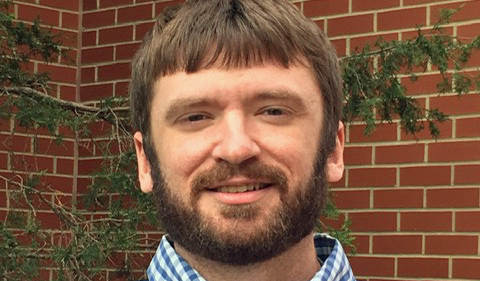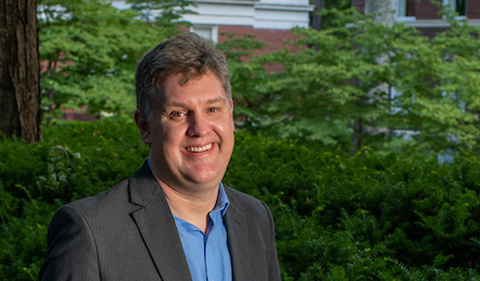Kyle Balzer, a doctoral student in History and the Contemporary History Institute, recently won a Student Enhancement Award from Ohio University’s Research Division.
Together with a research grant from the Gerald R. Ford Foundation for work at the Ford Presidential Library in Ann Arbor, Mich., this allows him to complete most of the fieldwork for his doctoral dissertation on former defense secretary, CIA director, and energy secretary James Schlesinger.
CHI’s Michelle Mayhew caught up with Kyle for an interview by email.
MM: What’s your dissertation about?
KB: It is an intellectual biography of James Schlesinger, a defense intellectual who held several cabinet positions throughout the 1970s (most prominently defense under Ford and energy under Jimmy Carter). I hope to examine Schlesinger’s thinking concerning U.S. security policy during a period of political, economic, military, and social transformation. He is a figure worthy of historical study because of what he represents for U.S. national security during the 1970s and beyond. And particularly on intelligence and energy policy questions and on the shifting focus of Washington toward the Middle East throughout the 1970s, Schlesinger’s actions and his context also give a good window into more recent events and maybe even the present.
MM: How have to gone about securing funding for a multi-archival study?
KB: Ohio University and the History Department have proven to be a great place to pursue doctoral work. As a new Ph.D. student, I was pleasantly surprised by the amount of university-wide funding available for research. Now, as a Ph.D. candidate, I have been fortunate enough to take advantage of these opportunities. Funding cycles so far have been fruitful, as I have managed to receive Contemporary History Institute grants, the Student Enhancement Award, and the College of Arts & Sciences Graduate Student Research Fund. Beyond the University, the Gerald R. Ford Presidential Foundation extended a travel grant that affords me the opportunity to conduct research at the Ford presidential library. All of this provides a great opportunity to research and write my dissertation.
MM: Have you been able to stay productive as a researcher during the pandemic?
KB: As far as research during the pandemic, conditions certainly present a considerable challenge. For example, the Ford Library closed right after I learned that I had received a research grant that would have allowed me to go. Thankfully they extended the timeline through 2021. However, thanks to the support of my dissertation committee—Drs. Ingo Trauschweizer, John Brobst, Paul Milazzo, and Jim Mosher—COVID-19 did not halt work. They directed me to the available digital resources and have always been there if help is needed. I have worked with the Contemporary History Institute and Jeff Shane at Alden Library to acquire an essential digital archive that will serve as a tremendous resource for several chapters of my dissertation. The History Department, CHI, and Alden Library have been great during my time as a doctoral student at Ohio University. I have now completed my first full draft chapter and it is hard to imagine my work would have progressed so far at another institution in 2020 and 2021.




















Comments